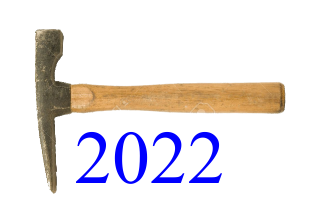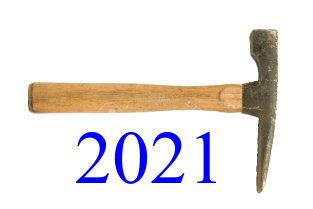Masoud Aali

Ph. D. Thesis
(PDF - 21.2 Mb)
This dissertation describes the development and application of geophysical techniques to understand the impact of eustasy on the deposition of shallow-marine stratigraphic sequences at the New Jersey margin ̶ one of the best places to study eustasy in sedimentary records. At this margin, eustasy has been the leading driver for sedimentary processes due to smooth thermal subsidence, continuous sediment supply, and stable tectonic history since the Oligocene. This study analyzes 564 km2 of 3D multi-channel seismic (MCS) data from the research cruise MGL1510 together with the IODP Expedition 313 well data to answer the following questions about the margin evolution: 1) What was the influence of eustatic changes on the shelf sedimentary structure during the late Miocene? 2) What was the impact of well-established orbital parameters on the spatial and temporal variations in processes controlling Miocene stratigraphic sequences?
I developed the Geometrical Breakdown Approach (GBA) to systematically identify seismic packages based on their geometrical characteristics. The GBA facilitates an objective analysis of stratal patterns and brings the resolution of sequence stratigraphic analysis up to the resolution of the input seismic data. Implementing GBA to the 3D MCS data has resulted in identification of ~40% more structure within the Miocene sequences than previously determined. The new structural model provides the framework for estimating spatial patterns of petrophysical properties within clinothems, which may act as a heterogeneous conduit barrier system to fluid flow in offshore fresh-water aquifers and hydrocarbon reservoirs. The integrated methodology used in this research results in an unprecedented 3D model that dissects and characterizes the Miocene sedimentary record at a significantly higher resolution (~5 m laterally) than previously achieved (~100s of m).
Spectral analysis of the cyclicity of these sediments yields local spectral peaks at a wide range of periods, from 25 Kyr to 2.5 Myr, that correspond to the cyclicity observed in insolation due to changes in the Earth's orbital parameters. The onshore-offshore movements of sequences show a 42% correlation with their contemporary insolation. These findings suggest that even short-period orbitally-driven eustatic changes had a direct impact on the Miocene sedimentary record of the margin.
Keywords:
Pages: 207
Supervisor: Mladen Nedimović



